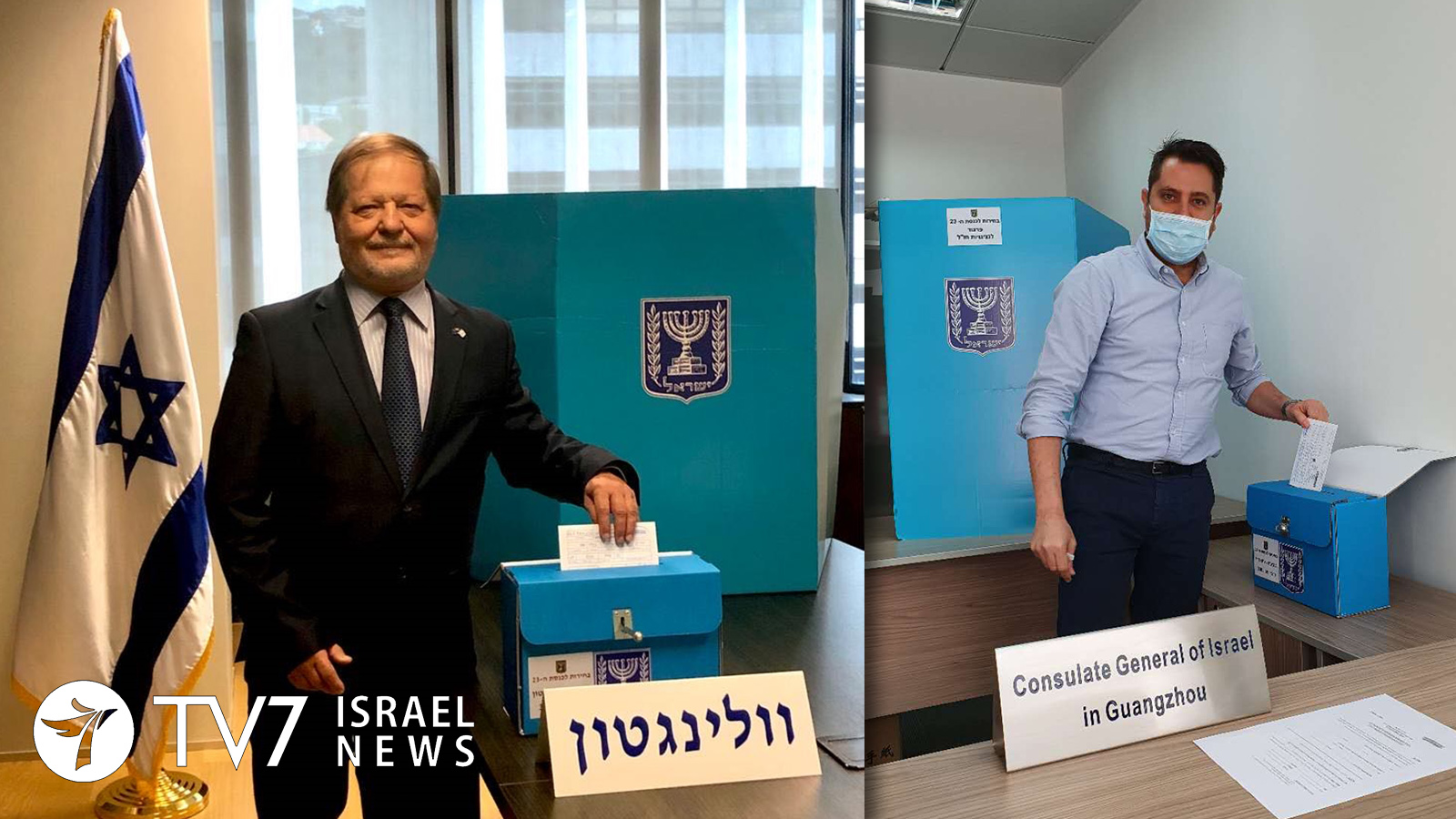Voting for the 23rd Knesset began earlier today by diplomats and personnel stationed at 96 Israeli embassies and consulates in 77 countries around the world.
Israeli Ambassador to New Zealand Itzhak Gerberg was the very first to cast a ballot, who tweeted “Over the next 24 hours thousands of Israelis abroad will join me in exercising their democratic rights.” In fact, 5,199 others serving the Jewish State oversees will be doing just that, between 8 a.m. to 9 p.m. in their respective local time zones. The highest number of votes expected to arrive will be from the Israeli Consulate in New York, where 812 emissaries are working.
Jerusalem officials say that “holding elections in such an extensive deployment and in different time zones requires a complex logistical system.
The majority of Israel’s 6.3 million eligible voters will go to polling stations on 2 March, in a third attempt to break the presiding political deadlock that failed to result with a functioning government after the two previous attempts on April 9 and September 17.
Meanwhile, a Justice Ministry spokesperson announced the first hearing of Prime Minister Benjamin Netanyahu’s trial will open at 3 p.m. on 17 March, just two weeks after the upcoming election and only one after the swearing-in ceremony of the new Knesset Members. Even though Israel’s longest-serving premier may at that time be the first candidate granted the mandate to try to build a long-coveted coalition, he is reportedly obliged to be seated in the defendant’s dock for the duration of the first court session while the indictment against him will be formally read into record.
Netanyahu’s legal woes mark the first time in Israel’s 71-year history that a sitting Prime Minister has been indicted; and if re-elected, it will also be the first time a serving Premier will undergo trial proceedings.
Historically, former Prime Minister Ehud Olmert stepped down from the premiership in 2008 before being indicted on four corruption cases the following year, concerning alleged offenses committed during his preceding tenure as Jerusalem Mayor. After his conviction in 2012 and 2014 trials, Olmert was sentenced to pay a $25,000 fine and serve eight months in prison.
